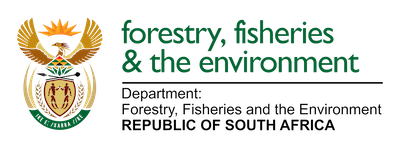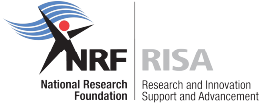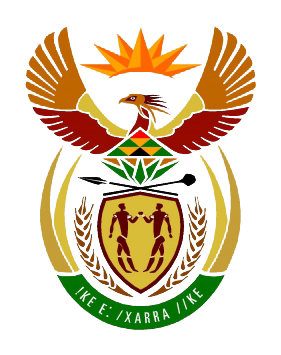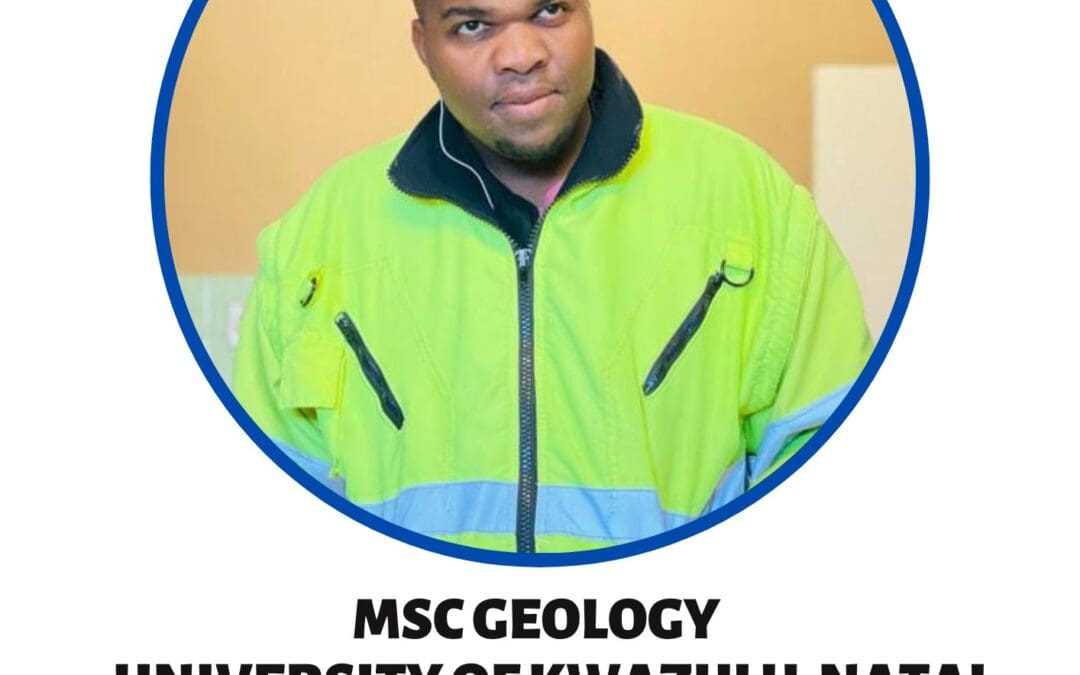
by Ria Olivier | Jul 14, 2022 | Current Event, News, Research, SA Agulhas II, SA Polar Research Infrastructure, SANAP, SAPolarRI, Science, Southern Ocean, STEM
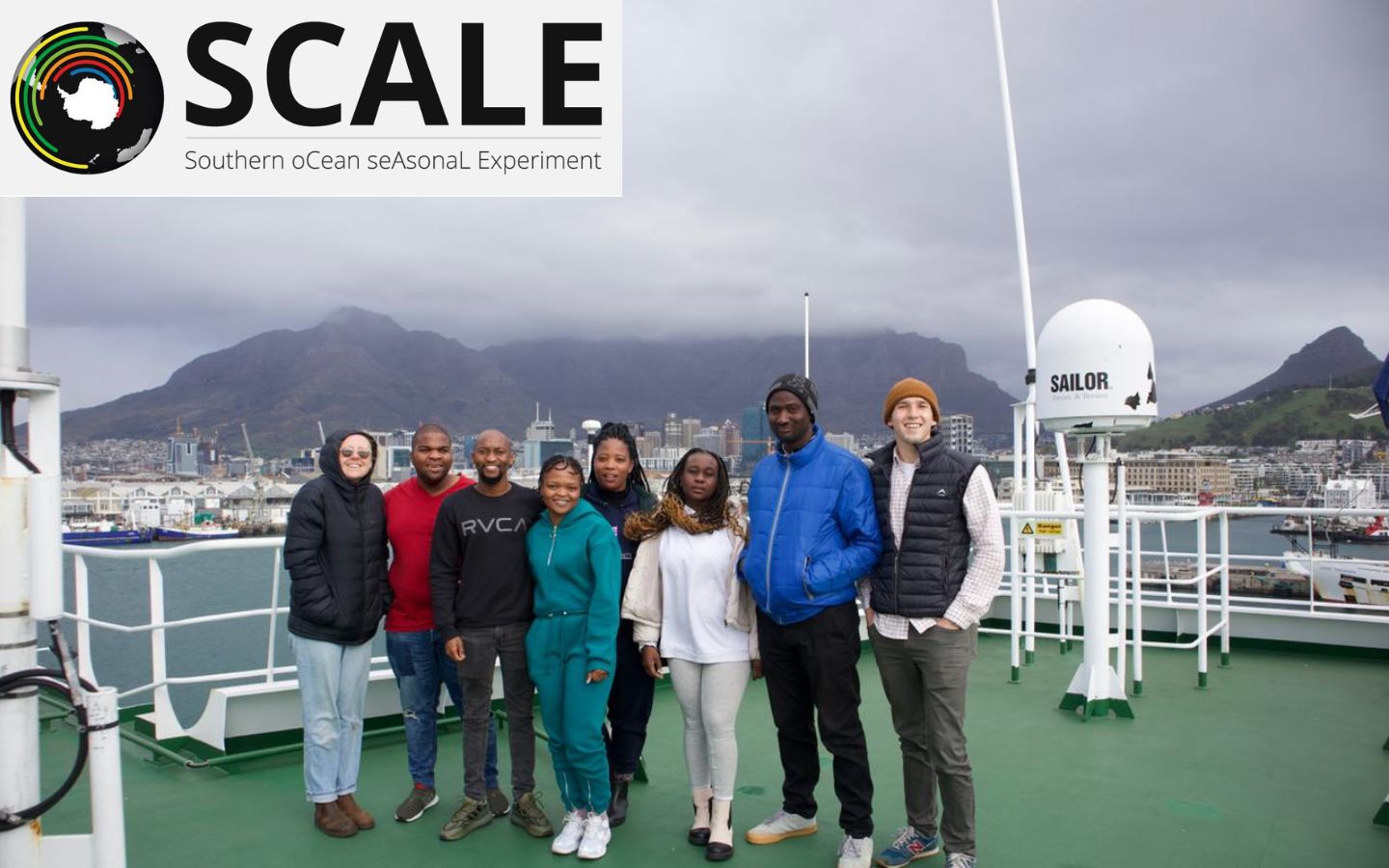
Through the South African Polar Research Infrastructure (SAPRI), the current SCALE-WIN22 (21-day) cruise, onboard the RV S.A. Agulhas II, is offering polar science training to 8 young individuals from South African universities not historically involved in polar sciences (or involved but in a small extent) or perhaps holding degrees not historically considered to be included in polar sciences.
They will get the opportunity to job-shadow members of the various research teams during onboard activities and get first-hand experience in polar sciences, by assisting with sampling. They will learn more about polar sciences through the onboard seminars delivered during the voyage.
Meet the 8 South African Polar Research Infrastructure (SAPRI) Trainees:
Pre-voyage logistics for the trainees were handled by the acting manager of SAPRI, Prof Juliet Hermes (Manager: South African Environmental Observation Network (SAEON) Egagasini node).
Read more about SCALEwin22 here!
Anche Louw, Antarctic Legacy of South Africa, 14 July 2022
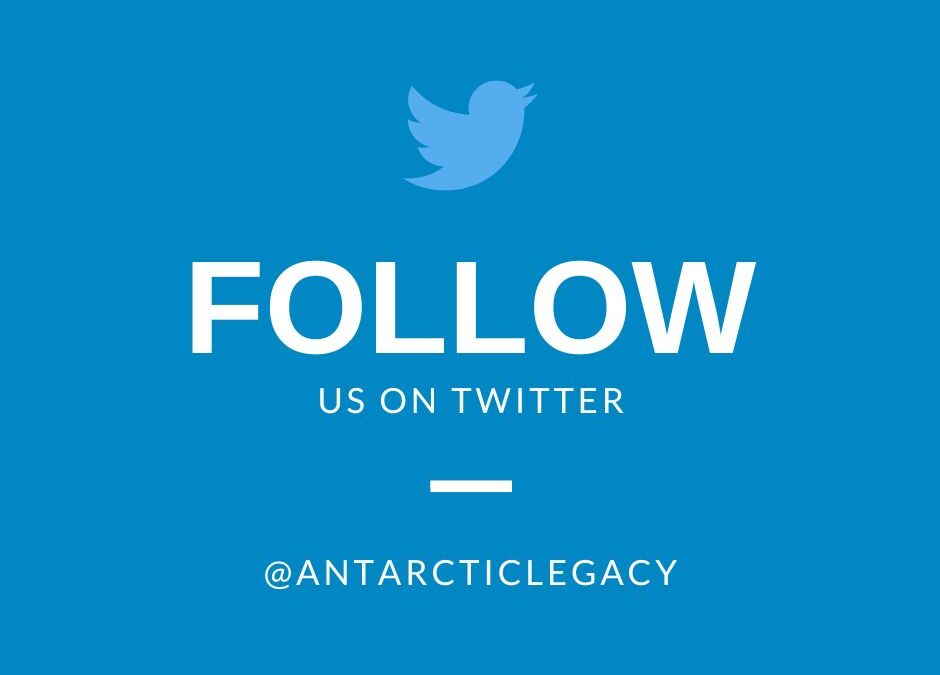
by Ria Olivier | Jul 12, 2022 | Current Event, News, Oceanography, Research, SA Agulhas II, SA Polar Research Infrastructure, SANAP, SANAP Student, SAPolarRI, Science, Southern Ocean, STEM
SCALE (Southern oCean seAsonaL Experiment) Winter 2022 Expedition (SCALE-WIN22) onboard the RV S.A. Agulhas II

This dedicated science cruise is funded by the Department of Science and Innovation (DSI) and the National Research Foundation (NRF) in support of the scientific community involved in Southern Ocean projects (South African National Antarctic Programme – SANAP and other fundings). The South African Polar Research Infrastructure (SAPRI) and the Department of Forestry, Fisheries and the Environment (DFFE) facilitated the coordination of logistics.
This is a continuation of the SCALE coordinated effort (Southern oCean seAsonaL Experiment) proposed by the South African scientific community as a bottom-up experiment.
“SCALE-WIN22 will be a 21 days cruise of intensive sampling of the ocean-atmosphere- sea ice processes in the Antarctic polar zone. Multidisciplinary measurements of physical and biogeochemical properties of the ocean and sea ice will be performed in a set of process stations in the outer and inner MIZ”.
Departure: 11 July 2022
ETA back in Cape Town: 31 July 2022
Area of operation: The S.A. Agulhas II will operate from Cape Town to the Marginal Ice Zone (MIZ) along the Good Hope Line.
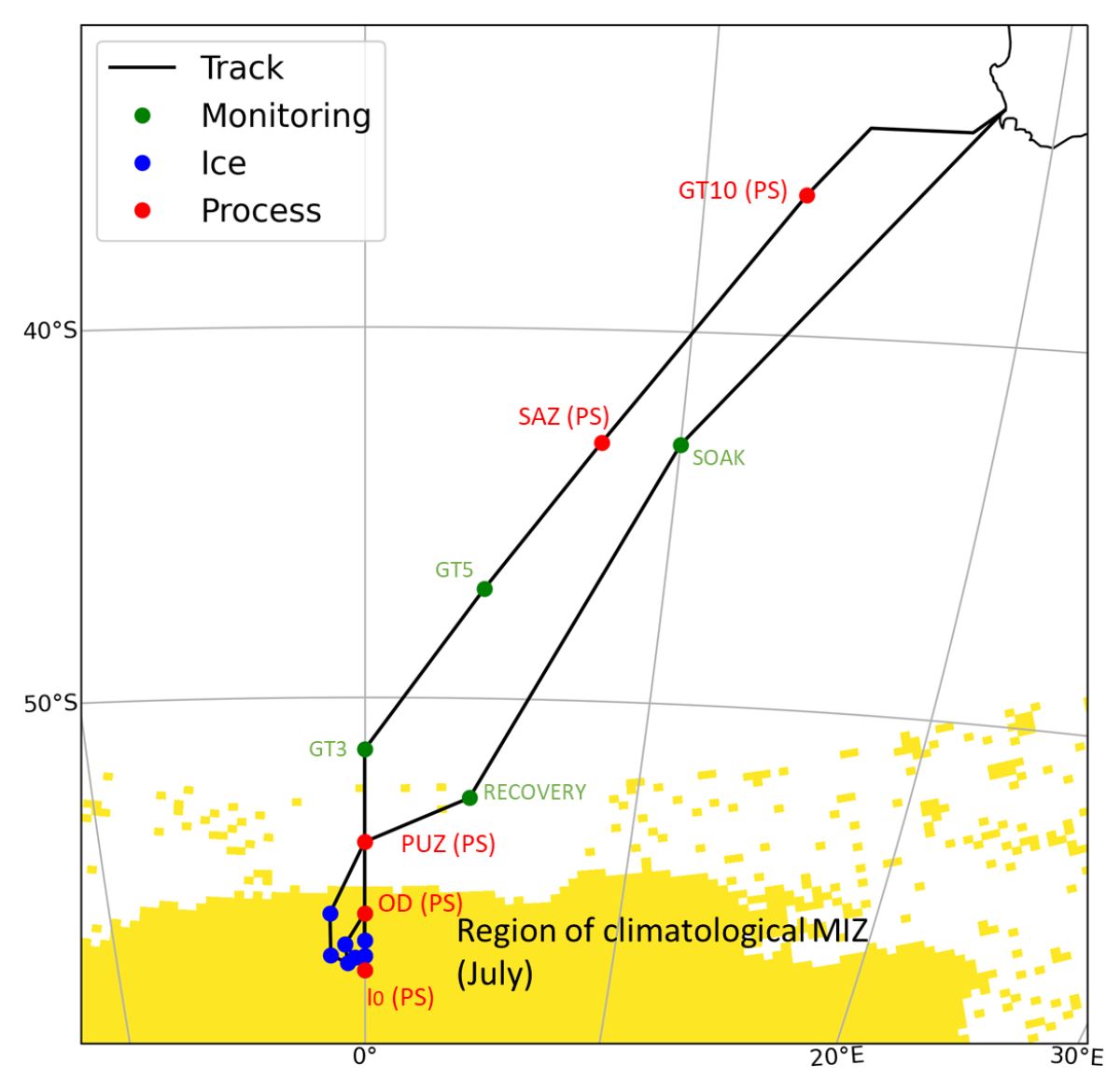
Provisional map of the track and stations.
Chief Scientists:
| Prof Marcello Vichi (UCT, on board) | Dr Sarah Fawcett (UCT, on land) |
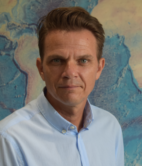 | 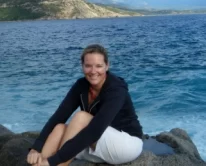 |
This cruise involves 13 national and 4 international research projects:
These projects will be introduced throughout the course of the cruise.
The number of passengers onboard:
84 passengers onboard the vessel. This number includes the 8 South African Polar Research Infrastructure (SAPRI) trainees.
National and international scientific institutions involved:
1. South African Polar Research Infrastructure (SAPRI) and South African Environmental Network (SAEON)
2. University of Cape Town (UCT)
3. Stellenbosch University (SU)
4. South African Weather Service (SAWS)
5. Cape Peninsula University of Technology (CPUT)
6. Council for Scientific and Industrial Research (Southern Ocean Carbon-Climate Observatory – SOCCO)
7. Department of Forestry, Fisheries and the Environment (DFFE)
8. University of Pretoria (UP)
9. Nelson Mandela University (NMU)
10. Representatives from the University of South Africa (UNISA), Rhodes University (RU), University of Kwa-Zulu Natal (UKZN), University of the Free State (UFS), Walter Sisulu University (WSU)
11. University of Gothenburg, Sweden
12. British Antarctic Survey, UK
13. University of Duisburg-Essen, Germany
14. The University of Melbourne, Australia
15. University of East Anglia, UK
16. Mediterranean Institute of Oceanography (MIO), France
17. CNR, Italy
18. University of Tasmania, Australian Antarctic Division, Australia
19. Aalto University, Finland
20. Finnish Meteorological Institute, Finland
21. SYKE, Finland
22. Alfred Wegener Institute, Germany
East Pier, Port of Cape Town. Cruise participants arriving from the quarantine facility. Only participants with negative Covid-19 test results will be allowed onboard.
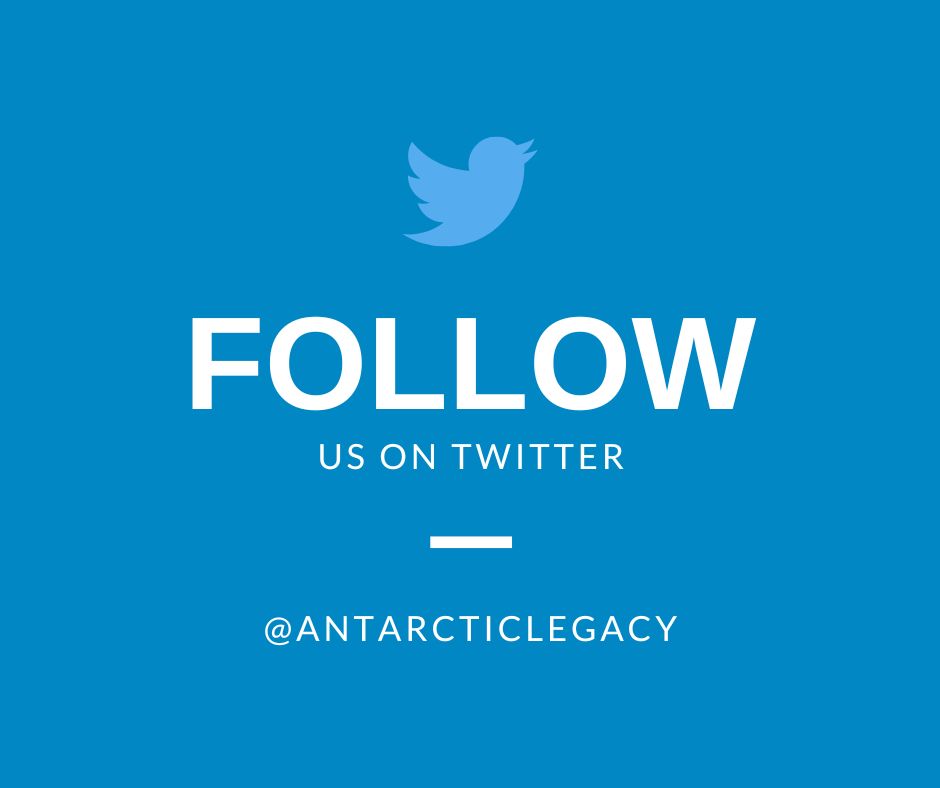
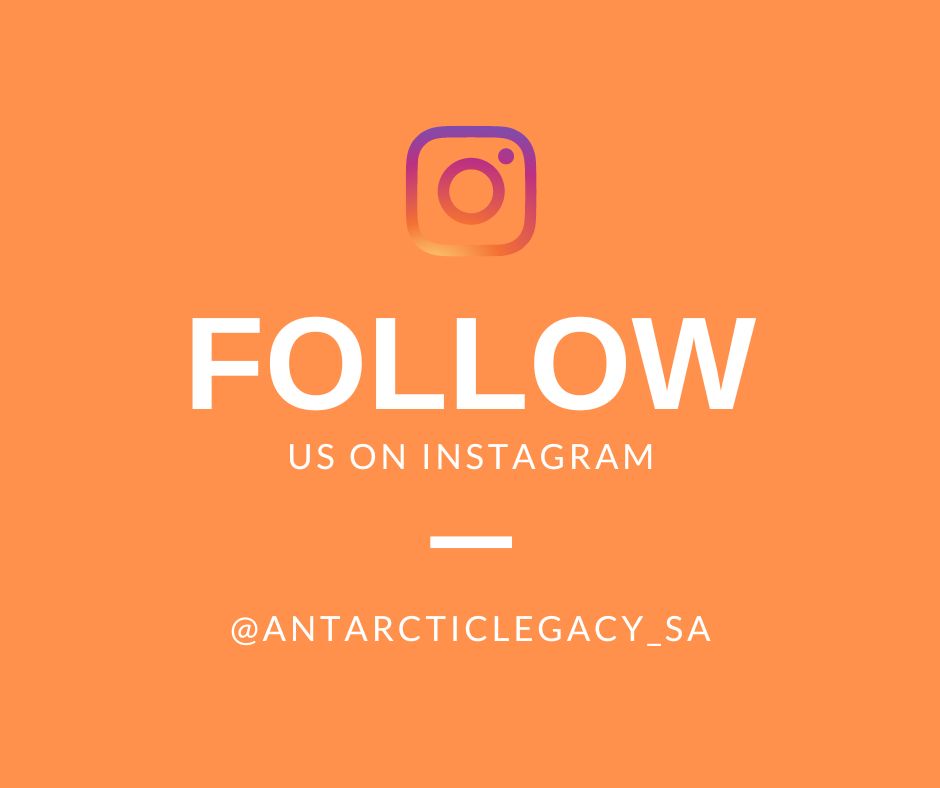
The offical cruise hashtag to be followed: #SCALEwin2022
Anche Louw, Antarctic Legacy of South Africa, 12 July 2022
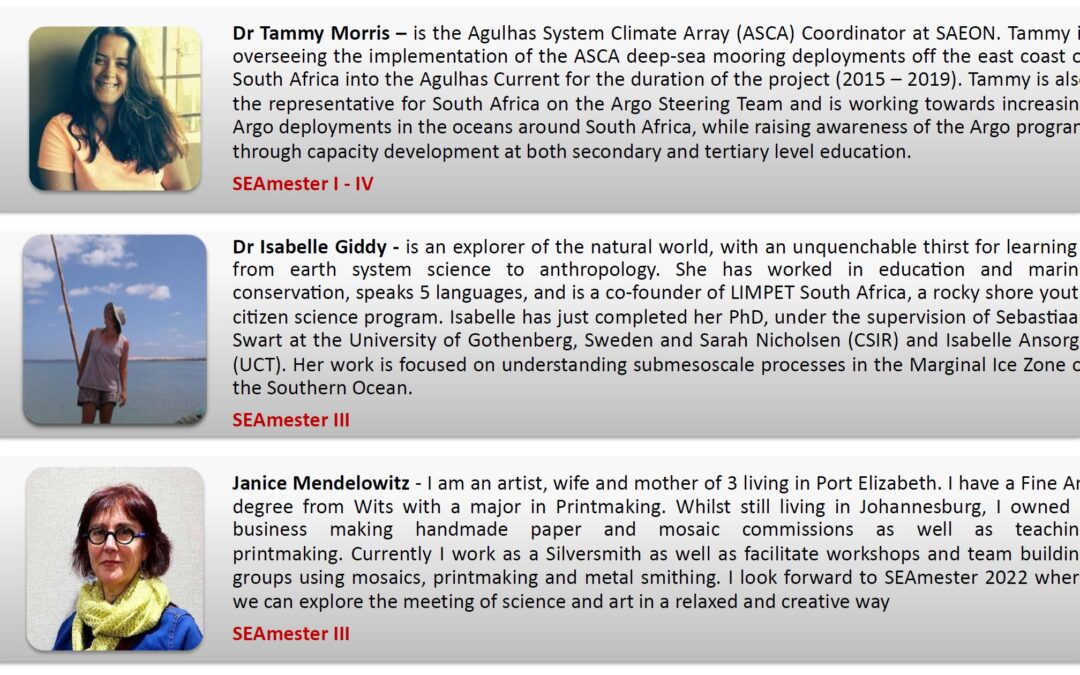
by Ria Olivier | Jul 7, 2022 | Announcement, Current Event, News, Research, SA Agulhas II, SANAP, Science, SEAmester, Southern Ocean, STEM, sub-Antarctic
South Africa’s 5th class afloat voyage, SEAmester V, is currently on the final leg home. On this last day on board the vessel, students are finishing up all deck work, and completing all projects and project presentations. There will be an art exhibition and farewell gathering later this evening.
This year, there were 21 lecturers involved in the SEAmester program.
Meet the lecturers of SEAmester V (2022)







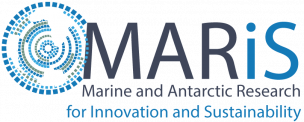
by Ria Olivier | Jun 3, 2022 | Announcement, Research, SA Agulhas II, SA Polar Research Infrastructure, SANAP, SAPolarRI, Science, Southern Ocean, STEM
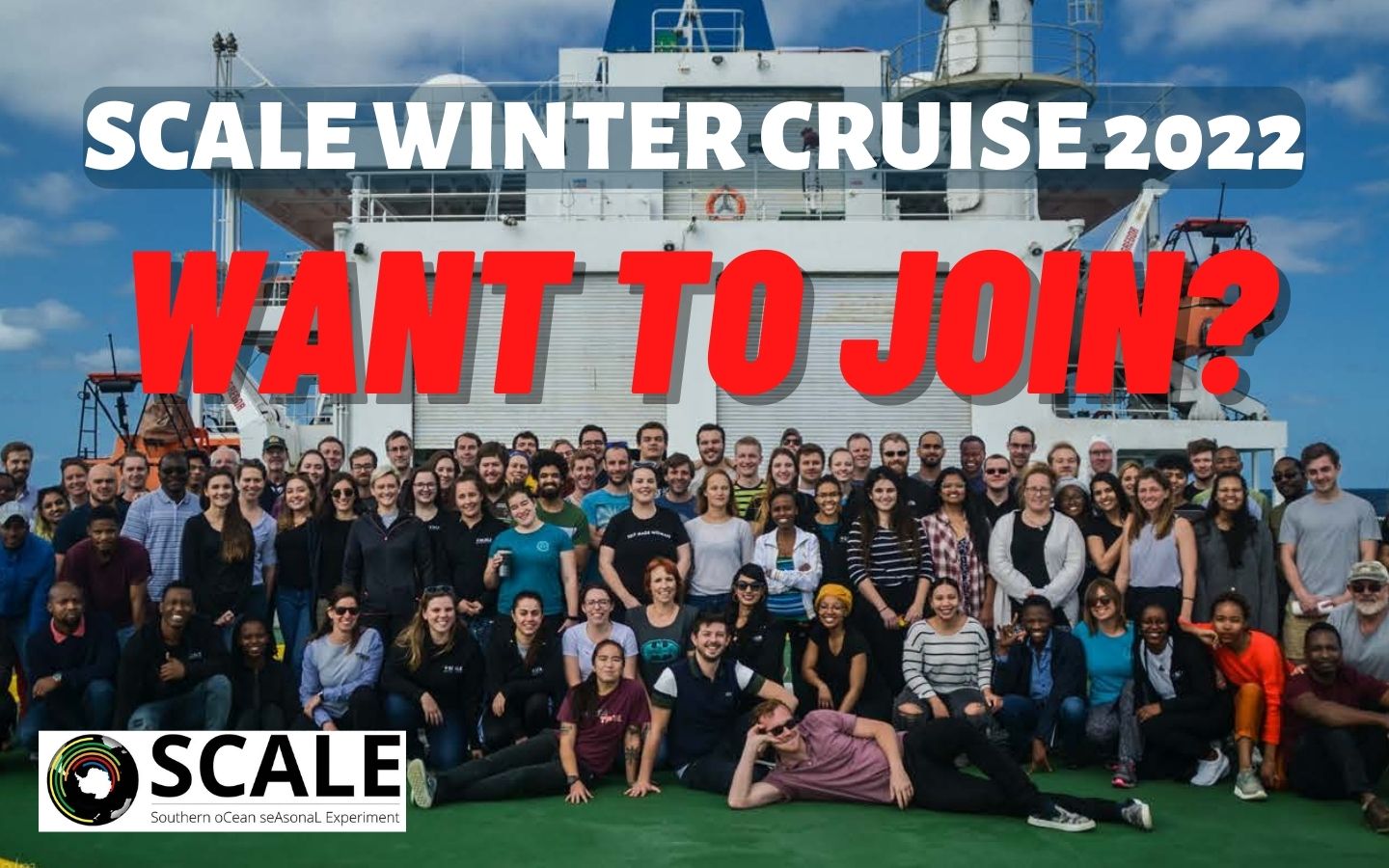
The South African Polar Research Infrastructure has been recently established through funding from the Department of Science and Innovation (DSI). SAPRI is a consortium of institutions led by the South African Environmental Observation Network (SAEON) that enables scientific research in polar sciences. Among the various aims, it will promote and support participation in the South African National Antarctic Program (SANAP) by institutions that have not been historically involved in polar sciences.
As part of this transformation program, SAPRI will support the participation of 10 early career researchers to an upcoming research cruise on the S.A. Agulhas II departing on the 11th of July 2022. The scientific program will cover a variety of polar disciplines, from open ocean sampling to sea ice measurements. The projects are currently part of the SANAP and other NRF-funded projects with topics in the Southern Ocean and are led by internationally renowned scientists, with the participation of international teams.
The “SAPRI trainees” can be either early career researchers with an interest to grow their career in the polar sciences or more established researchers that would like to broaden their horizons. It is aimed at people who are early career (post-MSc) or established scientists and technicians who will remain in the system either through a Postdoc or being employed. They will participate in seminars on board the ship and will be exposed to the science done by the various projects, with direct hands-on experience through job shadowing and direct sampling. This is an opportunity to expand your current research topics and to build a network that would be helpful for your own projects. The group of SAPRI trainees will eventually become leaders of individual projects in their own universities.
This is a last-minute call specifically addressed to institutions and topics that have not been traditionally part of the SANAP. This includes aspects of social and economical sciences that are relevant to the polar sciences. As such, we require a prompt response from researchers and postgraduate students (MSc, MPhil, PhD). Participants will need a valid passport and be ready to go through a quarantine period of 7 days prior to departure.
Chief Scientist: A/Prof Marcello Vichi (MARiS)

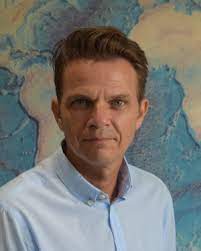
KEY DATES:
8 June 2022: Applications Close
5 July 2022: Quarantine in dedicated hotel
11 July 2022: Departure at East Pier, Victoria and Alfred Waterfront, Cape Town Harbour.
31 July 2022: Arrival at East Pier, Victoria and Alfred Waterfront, Cape Town Harbour
COSTS: The SAPRI will cover the costs for transportation, quarantine stay and medicals. Ship costs will be covered by the NRF.
Expression of Interest: Click here!
To view the SCALE Crusie Report of 2019:
Click here!
DEADLINE: 08 June 2022
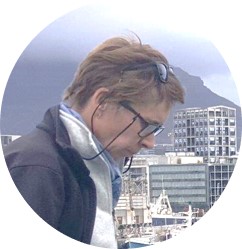
by Ria Olivier | Mar 8, 2022 | Engineering, Genomics, International Days, News, Oceanography, Research, SA Agulhas II, Southern Ocean, STEM, sub-Antarctic, Women in Science
The theme for this year’s International Women’s Day is “Break the Bias”.
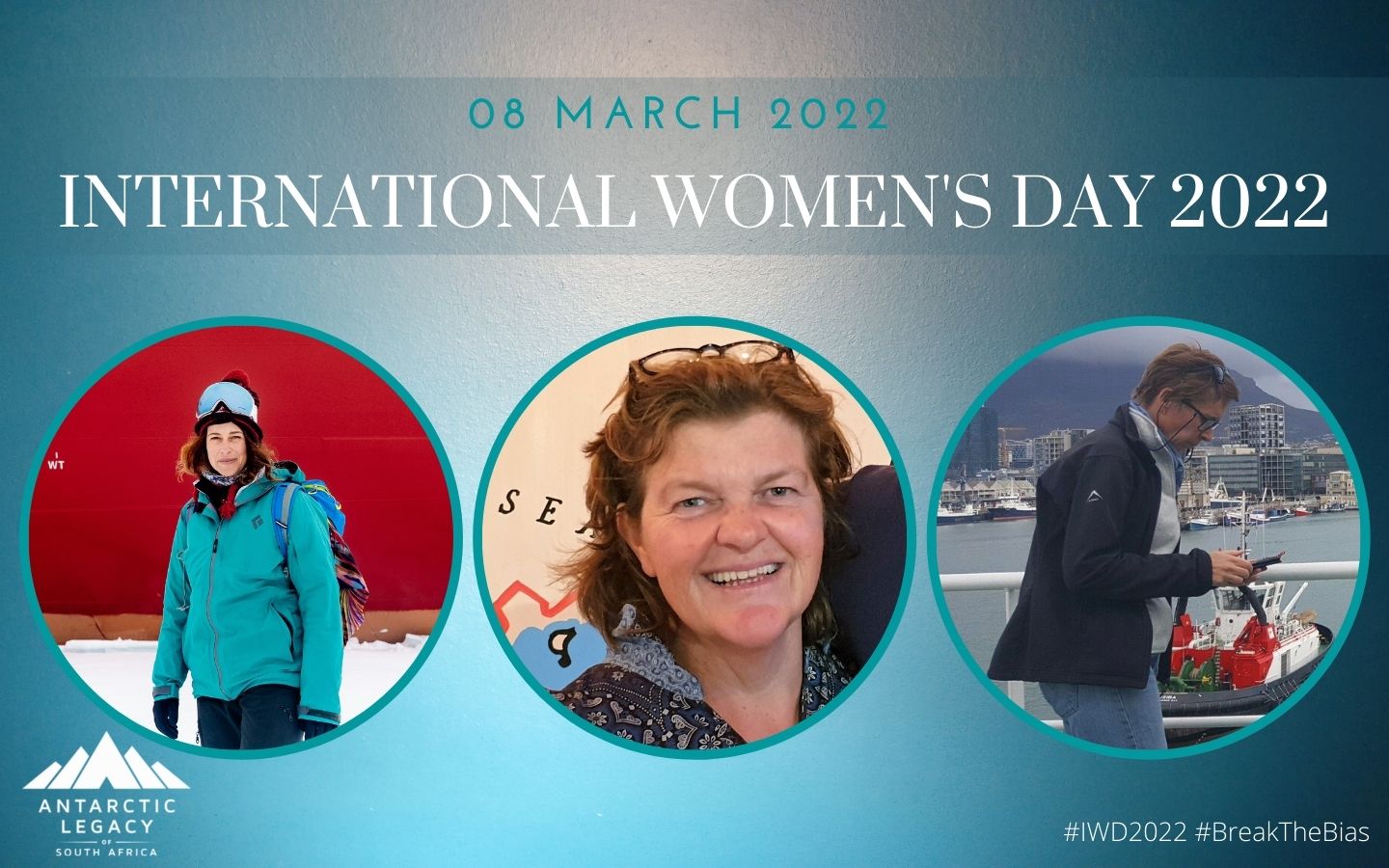
This year we are featuring three inspiring women within the South African National Antarctic Programme. They are leaders in their fields and represent South Africa on an international level.
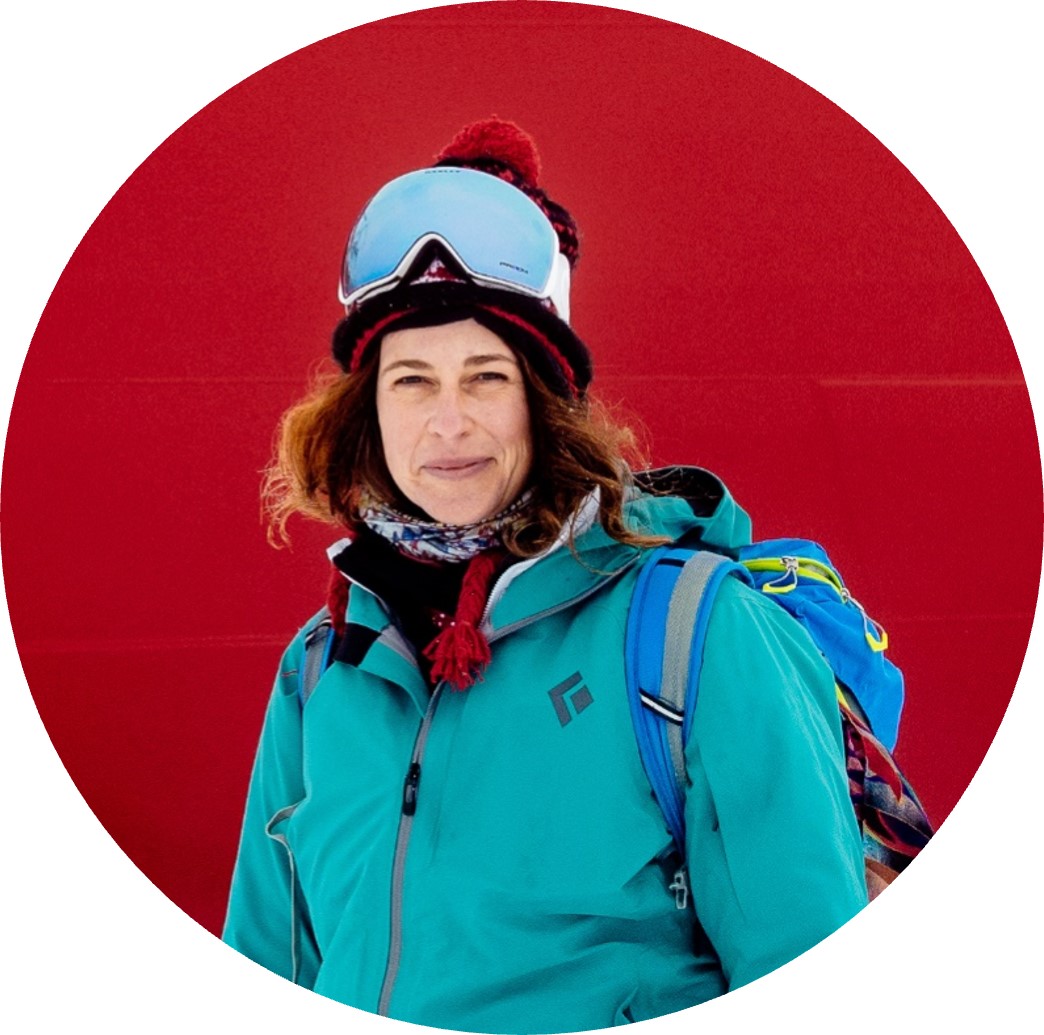 Prof Annie Bekker – Stellenbosch University
Prof Annie Bekker – Stellenbosch University
Professor in Engineering, Director of the Sound & Vibration Research Group, and currently on the international Endurance 22 expedition (Antarctica).
“My job is about applying maths and science to technology… discovering and searching for new things. It is sometimes difficult, it takes long hours, breakthroughs can be incremental… and many times the belief, momentum, and enthusiasm for success have to come from within myself… Today, I love my job and the hard work to this point is absolutely worth it. I could not get here without encouragement, love, and mentorship in key moments. I cannot continue without the support of my family, the example of my colleagues, or the curiosity of my students – their excellence and hunger for their own new frontiers of discovery.
This is your life. Invest in your education. Believe in yourself, try, try again, never give up. Be hungry to learn. Sharpen your skills. Absorb all that is positive around you. Find mentors. Accept responsibility. Rebound from failure. Celebrate success. Be brave. Dream”.
Check out the Sound & Vibraton Research Group website: svrg.sun.ac.za.
Read more about Annie’s work and adventures here.
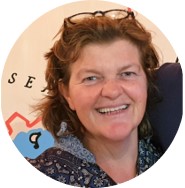 Prof Isabelle Ansorge – University of Cape Town
Prof Isabelle Ansorge – University of Cape Town
Head of the Oceanography Department at UCT and mastermind behind South Africa’s first class afloat – SEAmester.
Isabelle Ansorge is an observational oceanographer, Professor, and first female Head of the Oceanography Department at the University of Cape Town. Having built an observational oceanography career both nationally and internationally, Prof. Ansorge’s interests lie in Indian, Atlantic, and Southern Ocean dynamics that include Southern Ocean eddy transports of heat and salt, frontal dynamics, and variability in the Antarctic Circumpolar Current and its effects on Subantarctic Islands such as Marion Island. Another passion of Isabelle’s is the shipboard training of postgraduate students from all over South Africa and she is the mastermind behind the SEAmester Floating University programme. SEAmester provides an incredible teaching and research platform for South African early-career scientists and lecturers alike. Prof. Ansorge’s list of affiliations is a testament to her extensive experience in the field including being a committee member of the Scientific Committee on Antarctic Research (SCAR), as a member of the start-up committee for the Southern Ocean Observing System (SOOS), as an Executive Bureau Member of the International Union for Geodesy and Geophysics (IUGG) and formally the vice-president of the International Association for Physical Sciences of the Oceans (IAPSO).
Check out the SEAmester website: seamester.co.za.
Read more about Isabelle here.
 Prof Bettine van Vuuren – University of Johannesburg
Prof Bettine van Vuuren – University of Johannesburg
Professor of Zoology, Director of the Centre for Ecological Genomics and Wildlife Conservation, and Chair of the South African Committee for the Scientific Committee on Antarctic Research (SANC for SCAR).
“The first thing to say is that I believe there is nothing that any person can’t do if they apply their mind (and time) to it. We often set our own ceilings based on general beliefs that society or others impose on us, and it is crucial that we break through these (non-real) boundaries. STEM fields are a case in hand. This is especially true for women, who traditionally were seen as homemakers or child-carers. In STEM specifically, fields such as mathematics, physics, and engineering, and traditionally more field-based disciplines such as zoology, botany, or oceanography, are seen as more suited to men (either because women were not traditionally considered as analytically strong, capable to work in the field, or for that matter, be away from home for any period of time). It is critical that any person (both men and women) should carefully consider what they enjoy, what their specific strengths are (be that a STEM career for a woman, or as a childcarer/homemaker for a man), and then pursue that with all their strength and passion. Personally, I was initially directed into a field that I had no interest in (because I could not answer questions asked re where I would work if my husband lived in a small town), and from a personal perspective I strongly urge and support women that want to step out of the usual/ typical / what is expected from you by society and follow what they are passionate about”.
Follow Bettine on Twitter (Click here).
You can also visit her website: molzoolab.co.za.
Meet the SANC for SCAR committee here.
Read more about Bettine here.
Image of Prof Bekker supplied by: James-John Matthee.
Anche Louw, Antarctic Legacy of South Africa, 08 March 2022
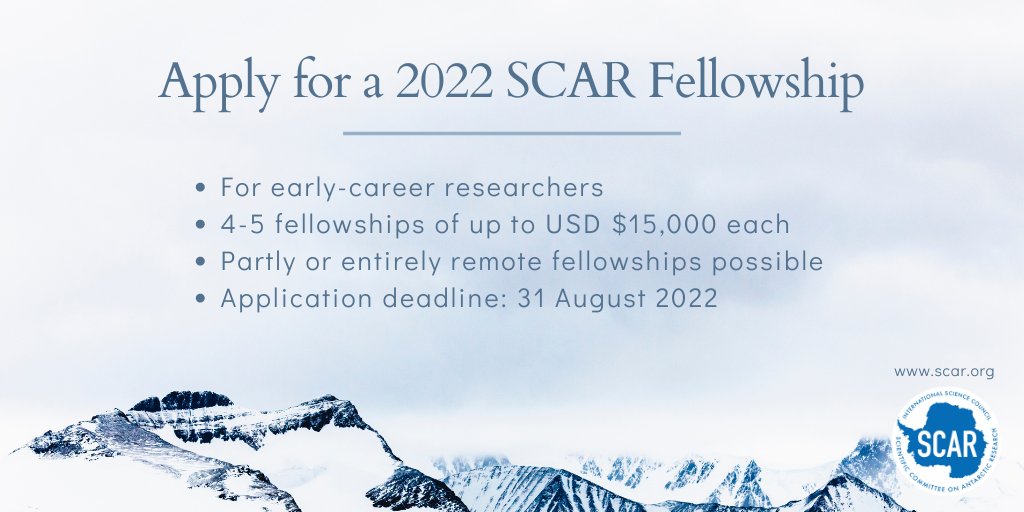
by Ria Olivier | Mar 2, 2022 | Announcement, Antarctica, COMNAP, Fellowship, IAATO, News, Research, SCAR, Southern Ocean, STEM
Attention all early-career researchers (ECRs).
Fellowship opportunities are now available at three Antarctic organisations.
- The Council of Managers of National Antarctic Programs (COMNAP) – offering one fellowship with funding of up to USD $15,000.
- The International Association of Antarctica Tour Operators (IAATO) – offering one fellowship with funding of up to USD $15,000.
- The Scientific Committee on Antarctic Research (SCAR) – offering four or five fellowships with funding of up to USD $15,000 each.
COMNAP, IAATO, and SCAR encourage all talented early-career researchers, scientists, engineers, environmental managers, and those in other early-career professions to apply for these fellowships.
“The purpose is to strengthen international capacity and cooperation in fields such as climate, biodiversity, conservation, humanities and astrophysics research by providing annual funding opportunities” (as per the fellowship announcement).
Application Deadlines:
- COMNAP – 30 June 2022
- IAATO – 30 June 2022
- SCAR – 31 August 2022
For more details: Click here.
Download the relevant information here.
Anche Louw, Antarctic Legacy of South Africa, 02 March 2022


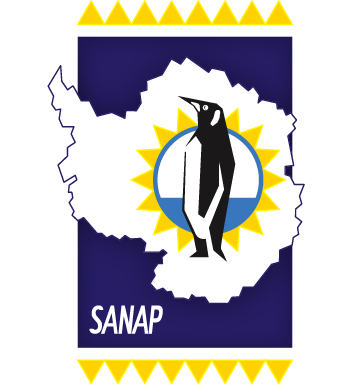




















 Prof Annie Bekker – Stellenbosch University
Prof Annie Bekker – Stellenbosch University Prof Isabelle Ansorge – University of Cape Town
Prof Isabelle Ansorge – University of Cape Town

